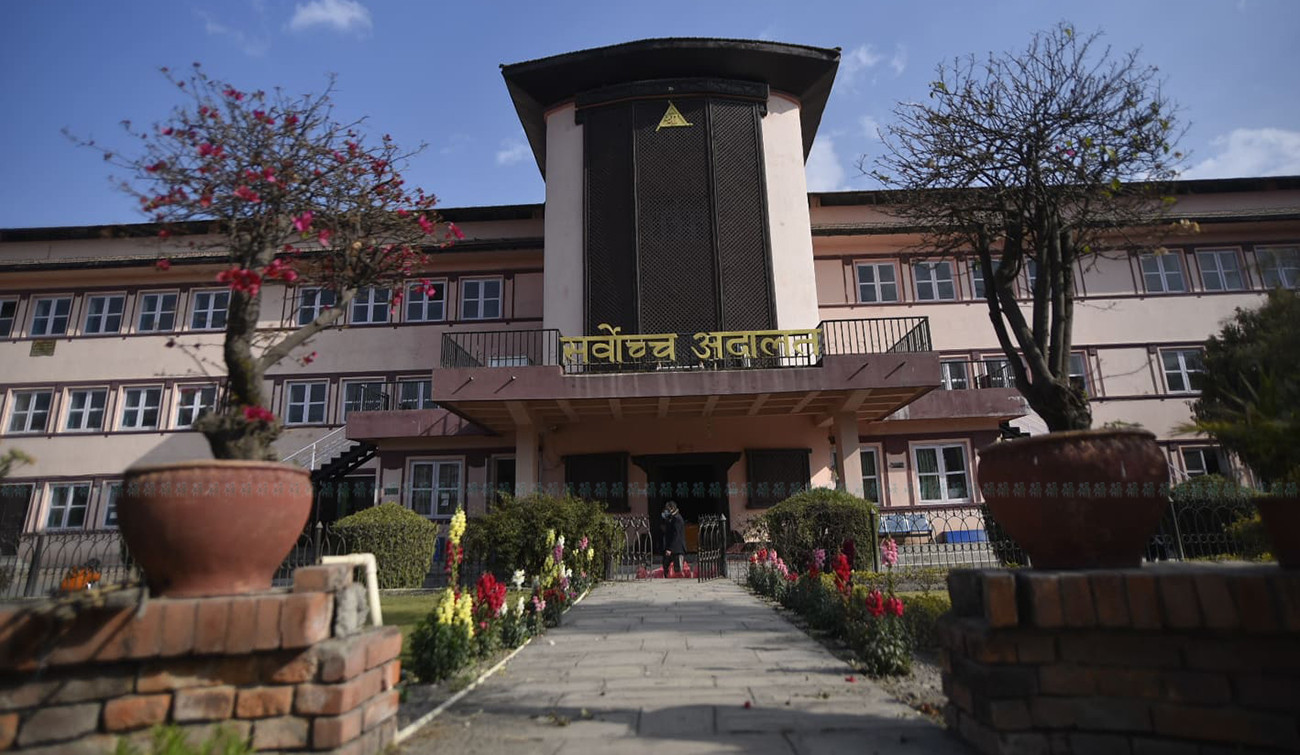The Supreme Court has invited amicus curiae to argue on behalf of both sides in the petition filed against the long-term power trade agreement signed between Nepal and India in January.
Hearing the petition filed by former chief of the Commission for the Investigation of Abuse of Authority (CIAA) Surya Nath Upadhyaya on Friday, a bench of Justice Nahakul Subedi has invited amicus curiae to represent each side on the day of discussion.
Stating that the matter includes constitutional and legal questions, the bench has requested the Nepal Bar Association and the Supreme Court Bar Association to send an advocate or senior advocate to represent each side for discussion.
The bench has ordered the government to explain within 15 days why the court should not issue an interim order to not implement the agreement as demanded by the petitioner.
It has also ordered the Office of the Auditor General to bring the original document of the agreement signed on January 4 on the day of discussion.
The court will decide whether to issue an interim order or not after hearing the arguments of both sides on February 6.
Nepal and India signed a long-term power trade agreement on January 4 during Indian External Affairs Minister S Jaishankar’s Nepal visit last month.
Energy secretaries of Nepal and India—Gopal Sigdel and Pankaj Agrawal respectively—signed the agreement in the presence of Energy Minister Shakti Basnet at the Ministry of Energy, Water Resources and Irrigation.
As per the agreement, Nepal will export 10,000 MW of electricity to India over 10 years.
Upadhyaya then filed a petition against the agreement stating that it was against Article 279 of the Constitution—related to ratification of, accession to, acceptance or approval of, treaties or agreements—and against the country’s long-term interests.
The petition also mentions that the agreement should be approved by a two-thirds majority of both Houses of Parliament as the subject is related to natural resources and the distribution of their uses.
“Any law to be made pursuant to clause (1) shall, inter alia, require that the ratification of, accession to, acceptance or approval of, treaties or agreements on the following subjects shall be made by a majority of two-thirds of the total number of the then members of both Houses of the Federal Parliament: (a) Peace and friendship; (b) Defence and strategic alliance; (c) Boundaries of the Nepal; and (d) Natural resources, and the distribution of their uses,” Article 279 (2) of the Constitution states.

